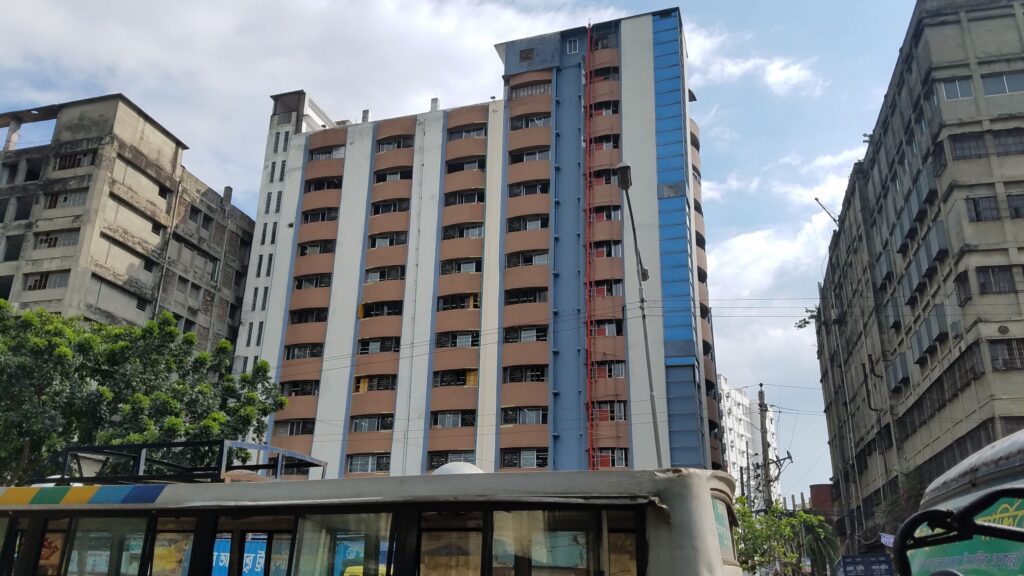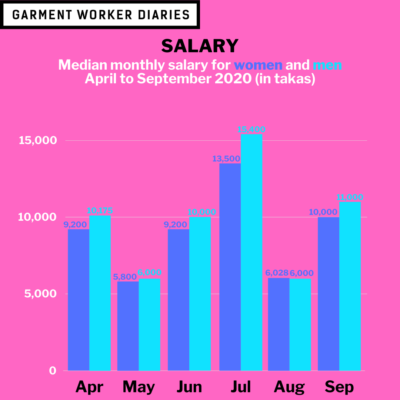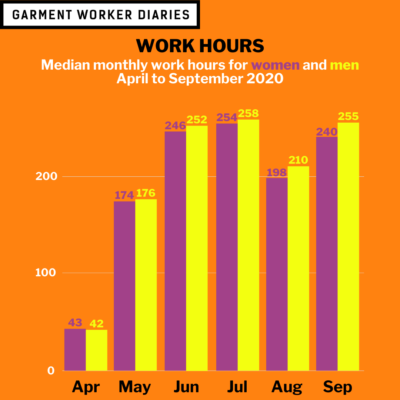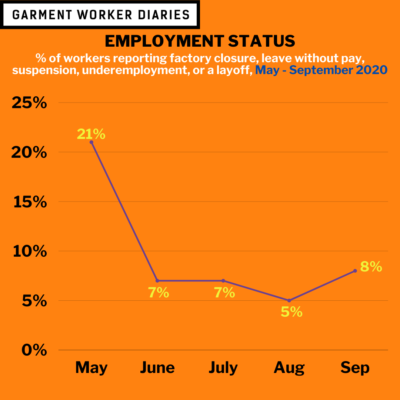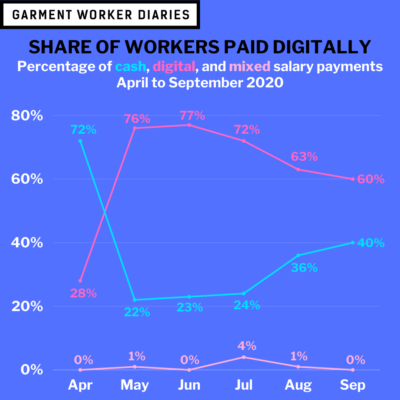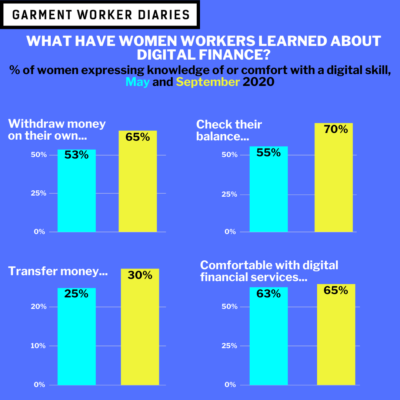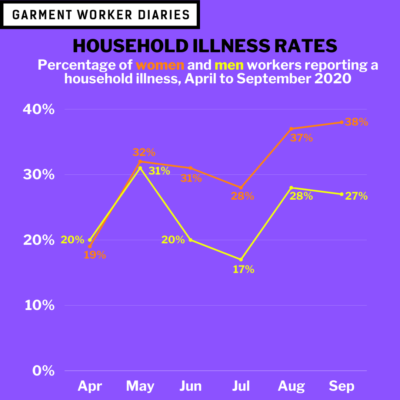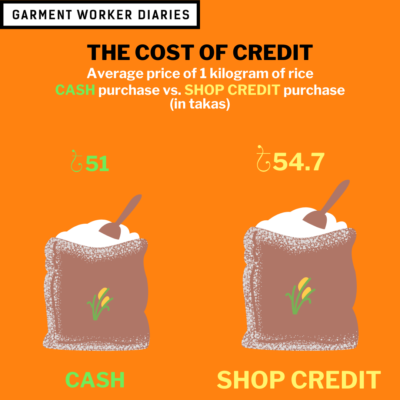Over the past few blogs MFO and SANEM have shared summary information on the economic condition of workers in the RMG Sector in Bangladesh. In this week’s we are going to cover much of the same ground, but we are going to raise questions that come out of the data. This is all in preparation for an exciting webinar that SANEM will be hosting on Saturday, October 31, 2020 at 8pm Dhaka time (10am EST). Panelists for the webinar include representatives of various RMG sector stakeholders who will be discussing the findings from the first six months of data collection.
Job Security in 2021
The employment numbers in the RMG sector have been reasonably good over the past few months. But as we reported last week, there are some indications that a less secure period may be on its way. This raises two key questions for stakeholders:
- How secure is factory work in the RMG over the next few months—are there other data we should be aware of?
- What policies/programs need to be in place to mitigate the potential employment insecurity?
The Future of Digital Wages
May 2020 saw a massive increase in the number of workers being paid digitally. But as we reported last week, the share of workers being paid digitally declined in August and September. On Saturday we will ask our panelists some questions regarding wage digitization:
- Will wage digitization be maintained?
- Are digital payments useful to workers, especially women?
- How can they be made more useful?
Work, Food Security, and Illness
Food security for workers was at a low for this study in April, when only 3% of workers said they were eating adequate amounts of food. This metric has improved every month since then, and a high of 54% of workers said they were eating sufficiently in September.
Household illness is another story: with just over 35% of workers reporting a household illness in September, the study has reached its highest illness rate yet. The low point was a 19% rate of household illness in April.
This raises questions for stakeholders:
- How do we raise food security so that it reaches 100% for employed workers?
- How do we manage the trade offs between employment and illness?
Cost of Credit
As we reported in September, workers are frequent users of store credit to buy their food, especially at the end of the month. But food bought on credit is often more expensive than food bought with cash, meaning that the workers are effectively paying interest of over 7% on money borrowed for a month.
This raises questions for stakeholders:
- What can be done to address the cost of food bought on credit?
- How can it be done in such a way that local shopkeepers do not feel like their livelihoods are being challenged?
The monthly data from April 2020 to September 2020 presented here come from interviews conducted over the phone with a pool of 1,377 workers. These workers are employed in factories spread across the five main industrial areas of Bangladesh (Chittagong, Dhaka City, Gazipur, Narayanganj, and Savar). Just over three-quarters of the working respondents are women, roughly representative of workers in the sector as a whole.
